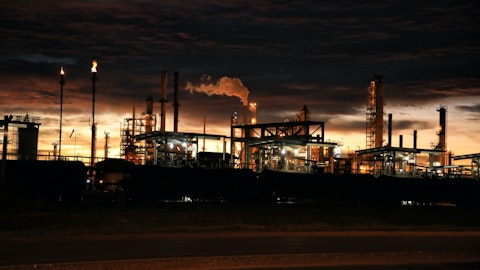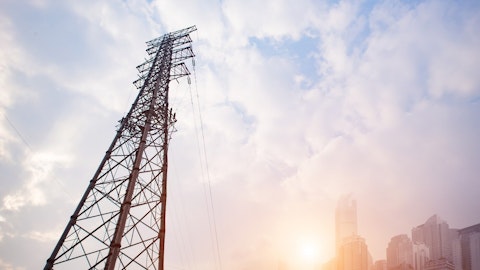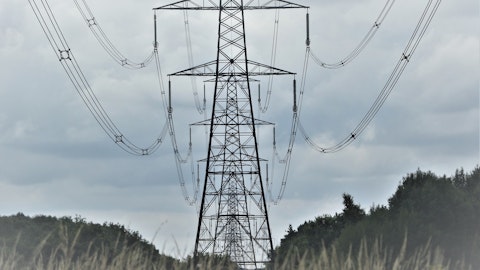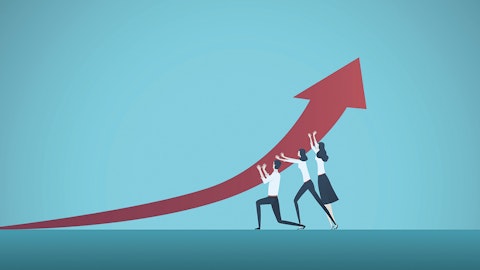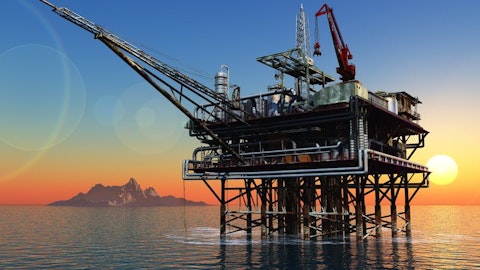Olivier Le Peuch: Yeah. Yeah. Absolutely. First, I think, to define, offshore has been, I think, seeing an uptick that started about 18 months ago. We don’t see it abating and we see it continue to steadily grow. I think what is changing this year is that, the shallow water environment was leading the growth to a large extent in the early part of this offshore cycle expansion. We are seeing the deepwater to catch up and including indeed exploration and appraisal activity that is set to visibly outpace international offshore activity actually. So deepwater will be the highest operating environment activity growth in 2023, and as part of it, exploration appraisal will be also outpacing and slowly rebounding. So it’s visible in multiple regions and I think you have seen East Mediterranean with a couple of announcements by two or three major announcements of gas discoveries that are set to be appraised further and then for future development.
You have seen some last year announcement in the South Africa and Namibia Basin that also get additional appraisal and future development. And you have seen that the East Atlantic margin and/or Suriname and Guyana remain very hot. And finally, East Asia is also seeing some deepwater gas exploration at the same time. So you have this four or five offshore mostly deepwater areas that are seeing exploration appraisal results of gas and oil, energy — gas and energy security and oil – pursuit of oil reserve replacements by major and by national — large national company. So I think this is happening. And this builds on top of the very high shallow water activity that has already rebounded and is set to further accelerate in the Middle East, where be it in Saudi and UAE or in Qatar, we have a combination of oil and gas offshore development plans that are in place.
So offshore outlook is strong and is here to stay for years to come.
James West: Very good. Thanks, Olivier.
Olivier Le Peuch: Thank you.
Operator: Our next question is from David Anderson with Barclays. Please go ahead.
David Anderson: Hi. Good morning, Olivier. So two things really kind of
Olivier Le Peuch: Hi.
David Anderson: Hey. Good morning. So two things really stood out to me today, I guess, the first was you calling this a distinctive new phase of the cycle, but also really kind of what it means for the duration of the cycle, what I’d like to ask you about. So first, on the Middle East, it’s clearly now taken standard stage. You have talked about a record level of upshoot in spending in the next few years. In a lot of ways, it’s feeling like 2005 again. But I was wondering if you could talk about how this cycle could be different for SLB in this region for the perspective of the types of work you are performing, how are the contracts being tendered differently and really what that means for the pricing opportunity both within discrete services and integrated contracts?
Olivier Le Peuch: No. Thank you, Dave. Let me comment first on your remark on durability. I really believe that the cycle that we have entered internationally, that is characterized now by the Middle East joining the growth engine if you like is set to be very durable. I think and the driver of that, as I said, is a combination of four or five countries having committed capacity expansion for oil production for the future and that are much in need as we can see that the tight supply is here to stay and to stretch the market and also for regional gas development and this is happening simultaneously in multiple countries. So this is set to happen and will not last one year. These are long-cycle offshore, onshore, gas, and some of it unconventional, and oil development.
